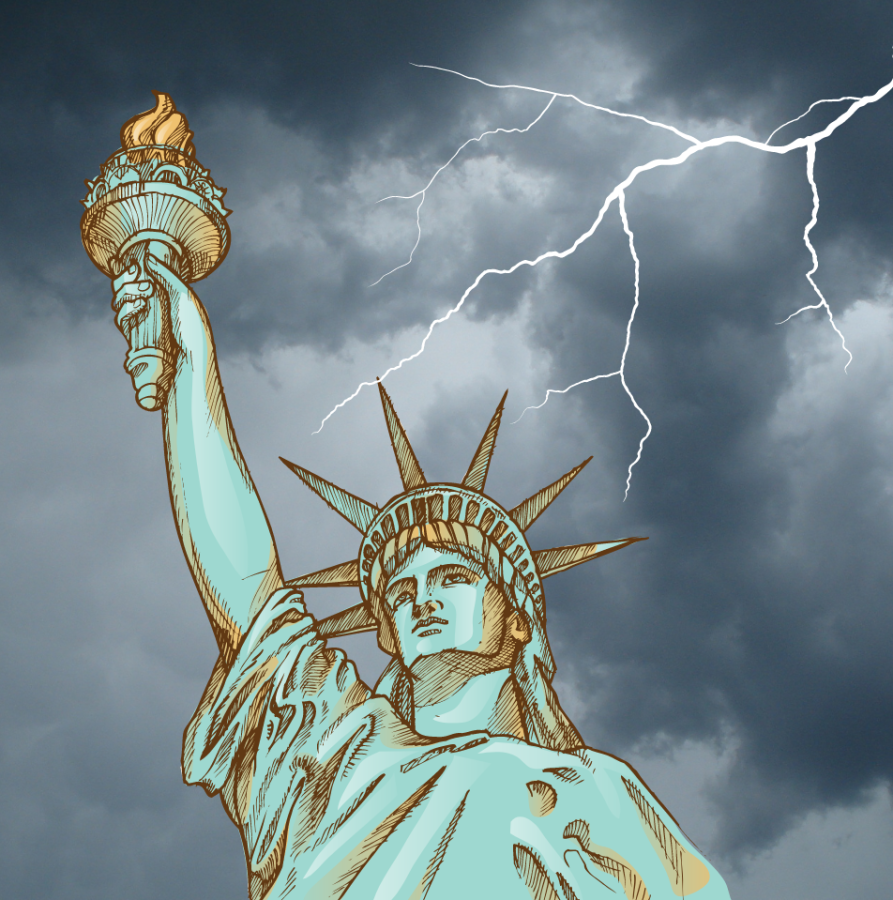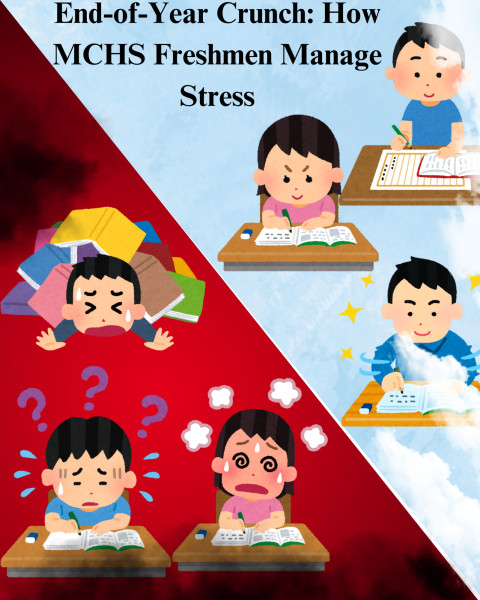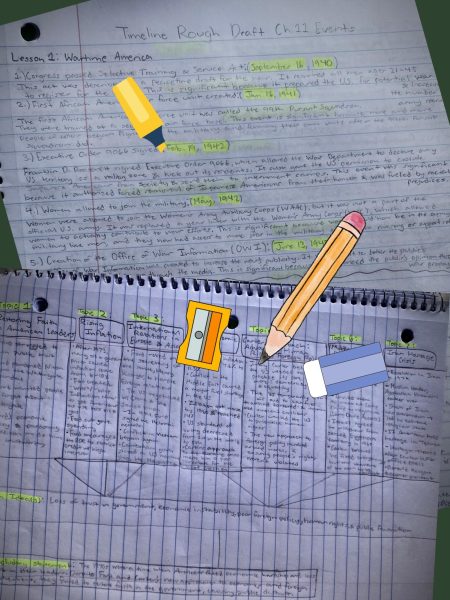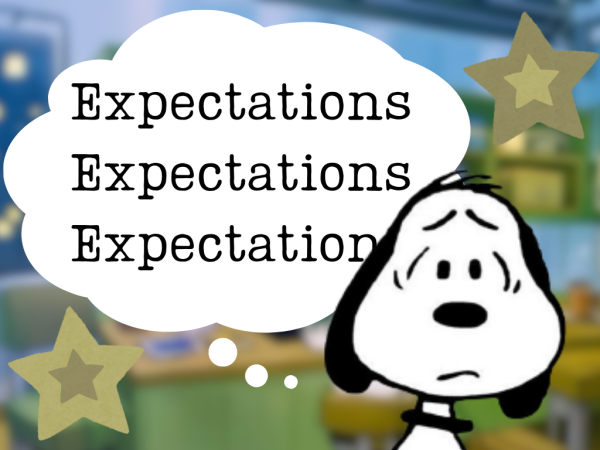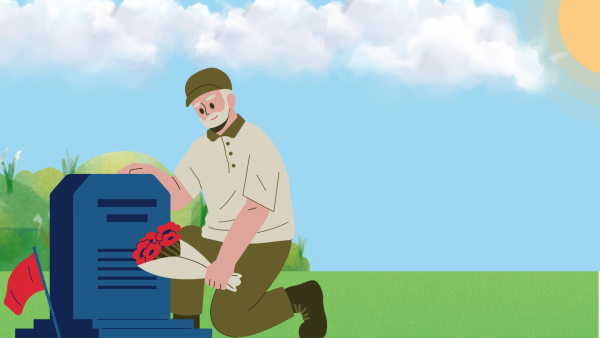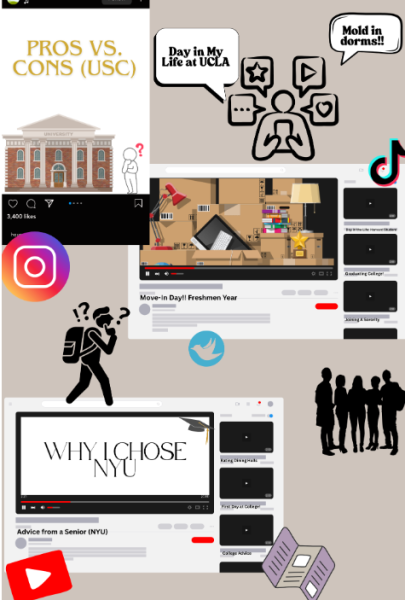Are political memes ruining democracy’s dreams?
Christine Hinckley (made with Canva)
The current meme climate poses a risk to democratic ideals due to the spread of misinformation.
The homophobic dog. Ryan Gosling sigma male. John Cena dancing. My body is a machine. I bring a sorta vibe. The staring Avatar guy.
If you have ever been on social media, you have seen a meme.
Merriam-Webster defines a meme as, “an amusing or interesting item (such as a captioned picture or video) or genre of items that is spread widely online especially through social media.”
There are many types of memes, and they typically vary between generations.
For example, Gen Z has a variety of popular meme styles including: ironic, layered, and references to events/pop culture. Their humor style is absurdism, juvenile, satirical, and sarcastic.
From my own observations, Millennial memes are relatable, easy to understand, and usually discuss work or one’s personal life. Contrary to Gen Z humor, Millennials’ humor is typically self-deprecating, puns, observational, affiliative, and dry.
The intent and style of political memes make them the 21st century version of political cartoons. One study from 2017 done by Hannah Rashkin, Eunsol Choi, Jin Yea Jang, Svitlana Volkova, and Yejin Choi classified memes into four distinct classes: trusted, satire, hoax, and propaganda.
The majority of memes in the study contain one or more propaganda techniques. The most common techniques observed were smears, loaded language, and name-calling.
Santa Ana College political science professor Philippe Andrade said, “I think memes are just a rudimentary form of the political cartoon.”
Political memes have many similarities to old political propaganda. Both mediums aim to attack an opponent, typically have mean-spirited motivations, and advance one’s own political views by spreading it among a large audience.
Andrade said, “The general idea in propaganda is you get whatever piece of information that suits your desired purpose, which either would generally disparage those you consider a rival politically or support someone or something that you support politically.”
The main difference between the two mediums is by whom and how they are created.
Andrade said, “It seems like memes are user-generated. They’re not coming from like some hired artist from a newspaper. They’re coming from everyday citizens.”
The fact that anyone can create political memes and propaganda poses serious risks to democracy if left unchecked.
An article from the Washington Post, pointed out that democracy is at risk in a poor informational environment.
When voters aren’t aware of the misinformation they are seeing, they make uninformed decisions which can lead them to vote with misguided intentions.
They also may not vote at all based on the information they see. Memes can make people take politics less seriously or cause people to feel apathy towards politics.
23-year-old Jakob Thompson sees most of his memes on an app called IFunny.
Thompson’s favorite political meme is one of Bart Simpson with him saying, “What an odd thing to say.”
Among all of the political meme templates, this is Thompson’s favorite because it is used to highlight suspicious quotes and activities of politicians.
He said, “It resonates with me because I know most groups and politicians have ulterior motives and sometimes they aren’t clear to see until they say something revealing by accident.”
Thompson always does more research on the memes he sees just in case they are spreading misinformation.
He said, “I navigate the potential misinformation by not believing anything that I don’t know enough about. If going through the comments or looking up the topic shows no results, then I assume the topic was false and I don’t take it to heart.”
Although political memes have the ability to be harmful, they can be a good way of entering politics.
Thompson said, “I think anything that gets politics into the conversation in any way is good for political engagement because I feel like it’s all too easy to live your life and hardly think of who the decision-makers are and what influences their choices.”
Being engaged in political discussion especially with those he doesn’t agree with is something that is important to Thompson. Hearing all sides and doing more research on what he sees is one of the many ways he stays politically active.
Senior Alexx Gutierrez sees memes on Instagram.
He said, “A lot of them are more conservative. They usually involve gun rights and make fun of liberals. They usually like to talk more about outlandish ideas about like how the government controls everything.”
When Gutierrez sees political memes, he doesn’t take them seriously.
“I understand that all of it should be taken as a joke,” Gutierrez said.
Overall, Gutierrez believes that political memes are negative because most people don’t understand that they’re meant to be jokes.
The only positive Gutierrez could think of was that they can start discussions.
“They can bring light to topics that people might not usually talk about,” he said.
Gutierrez thinks that people should be learning about politics from other sources.
He said, “Memes shouldn’t be your main source of information when it comes to politics.”
Senior Nicholas Cisneros comes across political memes on Instagram.
He said, “I find all of the political memes entertaining. I just enjoy jokes to begin with and poking fun at the contradictions from either side is enjoyable. I think they resonate with me as I like to find holes in arguments, and this is a comedic way to do so.”
Cisneros mentioned that he used to be influenced by political memes.
He said, “I know in my younger years I was swayed a lot by political memes, especially with the restriction in our ability to socialize. Essentially, I would say the unfiltered stream of memes and other media coupled with a lack of social connection could negatively influence people’s attitudes.”
Cisneros believes that the widespread nature of memes can start conversations about important topics and can help people understand the world around them.
He said, “Even jokes can open the door to information about a new topic that isn’t widely known about.”
The only negative impact Cisneros believes that political memes have is that they can start negative discourse.
He said, “I see political memes overall as a great alternative for people who want to criticize ideas in a usually light-hearted manner.”
Donald Trump is one political figure who has used memes to help his career. Much of his political existence is a product of memes culture. According to Andrade, this is mostly seen with giving his rivals nicknames.
“He’s the master of memeing in all of its different forms. Whether you’re a fan of his or not, I don’t think you can deny that aspect of his political success,” Andrade said.
Trump has given other politicians names like “Crooked Hillary” (former presidential candidate and U.S. Secretary of State Hillary Clinton), “Little Marco” (Senator Marco Rubio), and “Low Energy Jeb” (Senator Jeb Bush).
These names have been created by Trump but have gotten spread through memes.
Focusing on the nickname “Little Marco,” Andrade said, “A senator is someone we put on a pedestal, someone who could be a future president, an elite of elite and if you reduce them to an image or a line they become a joke. If they become laughable, to a degree it diminishes their legitimacy and their power.”
That type of attack would not be possible without Trump’s meme-ability.
Andrade said, “His political persona wouldn’t work if memes weren’t such a big thing. It perfectly complements meme culture.”
It is okay to laugh at certain memes and people but laughing at political figures is a different case. Making fun of them leads us to adopt a cynical mindset about government which harms participation.
Most memes are harmless because the goal is to get the viewer to laugh. The majority of memes are not meant to be taken seriously, however, when certain topics are included, there can be an issue.
Andrade said, “While memes are a great source of entertainment, making jokes out of a sensitive topic can be harmful and is counterproductive to addressing the seriousness of a topic.”
Not taking politics seriously can have serious consequences for democracy. If everyone stops caring about societal issues, nothing productive will be done with memes.
Andrade said, “It’s one thing if we’re laughing at celebrities, not generally healthy on a social level, but okay. If we’re laughing at political figures, these are incredibly powerful people. To not take them or treat them seriously is a cynical thing to do because its a passive aggressive way of saying ‘we’re better than they are.’”
The politicians we make fun of have the power to do things that have major impacts on our lives.
Andrade said, “You can make fun of your teacher to an extent, but at the same time, you have to realize they have the power to determine your grade, so it’s probably best to take that person seriously. If you start acting as a student that says, ‘I’m smarter than the teacher’ that’s not going to go well for your career as a student.”
Despite the downsides of political memes, they can actually be a good thing.
Andrade said, “I think you really have to work to find positives out of it. I would argue citizens in general, if they’re involved in discourse in a democratic society, is a good thing. Anything that encourages participation in any capacity strengthens our democracy.”
When people create memes to express their feelings, it can be a positive thing as long as the information included is factual. They can also be an entry point to political discussion.
Andrade said, “If that’s their introduction to political discourse and following the government and that leads to more sophisticated learning and following of political events, then it’s very positive. But if there is no advancement or development, then you only get the negative effects of memes.”
However, if people don’t expand on their political knowledge past memes, there are no positive outcomes.
Andrade described political memes as the door to the room of political conversation. Once you have entered the room, you have the ability to advance your understanding of politics and move forward with your participation. If you stay in the doorway or the room, there is no advancement.
How you interact with political memes is your own choice, but you need to be aware of the content you are consuming and how it impacts your own life.
Andrade said, “I don’t have a concern with high school students or even college-aged students fixating on memes as their primary form of (following) politics, but when you have 40-year-olds with children, and that’s their primary form, then that speaks volumes for where we are as a democracy.”
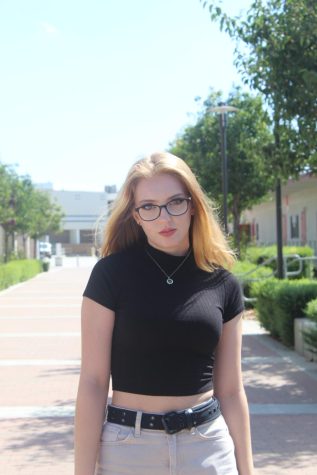
I have 4 cats, I’ve met Kill Bill:The Rapper, and I’ve seen Billy Joel in Vegas
































